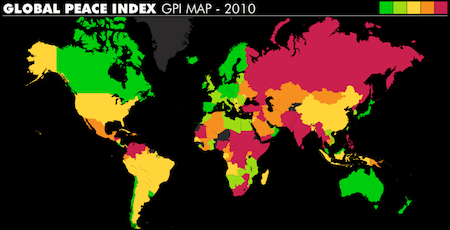Mark Murphy’s book on the importance of having high expectations and, for us at least, allowing students to rise to meet them. It’s a book recommended by Mary Yenik that I plan to read.
Month: June 2010
Non-verbal communication: Micheal Grinder
To communicate an important or difficult message, it is important that your non-verbal communications, gestures, body language, align with the words you speak. Micheal Grinder who teaches courses on presentation skills and classroom management has a few good YouTube videos like the one above.
His blog is also a good resource.
Spell check
I have a spelling checker,
It came with my PC.
It plane lee marks four my revue
Miss steaks aye can knot sea.
Do grammar and spell check actually help students learn? While it is Montessori-like in principle, making writing more like a self-correcting work, it removes much of the burden of correcting mistakes from the student because they are not forced to identify errors as the software makes suggestions for them.
In addition, grammar and spell checkers in particular, are not especially sensitive to context. The “Spellchecker Poem” (Zar, 1994; Hensel, 2008) passes through a spell checker without comment despite the obvious errors. While grammar checkers are getting better, accurately assessing context is a difficult challenge and fail when a person is trying to intentionally break the rules of grammar, which distracts the writer from their true intentions. Auto-correct functions can also be an incredible pain.
Spell and grammar check functions might work better if they just identified errors but not give students suggestions for corrections.
Of course, in writing this I am using spell check for almost every other word. They are an essential part of electronic writing and inseparable from computer use today. They are ubiquitous in academia and the workplace. Indeed it can be argued that their proper usage is a necessary skill to learn, although to most effectively use checkers you may very well need to know the rules of grammar that the checkers prevent students from learning.
I need to do a bit more research on the subject since I’m pretty sure I’m not the first to address this dilemma. I would really appreciate any suggestions about where to find publications about the topic (my Google-fu is weak with respect to this topic for some reason).
It would also probably be useful to create a lesson specifically dealing with the use of grammar and spell checking, probably using the “Spellchecker Poem“. My students do most of their writing electronically, either on the wiki or using word processing software so this is a topic I need to clarify my own thoughts on soon.
History of life
Franz Lanting has a great storytelling voice and wonderful photographs that catalogue the history of life on Earth, from early organisms like stromatolites to the modern diverse forms of life (Lanting, 2007).
Fierce leadership: Not wimping out
In my new “Books to Read” series, Susan Scott’s book Fierce Leadership. This was recommended by Mary Yenik who’s been teaching classroom management at HMC. Scott is the author of Fierce Conversations, which is about enabling people to have challenging conversations (parent-teacher conferences can be contentious sometimes) effectively. According to my notes, the new book is about “not wimping out.”
Montessori Secondary Training Blog
The training at the Houston Montessori Center for secondary teachers is long and quite intense. Two teachers from a new Montessori school in Lakeland Florida are keeping a blog about their experience to keep the parents and supporters of the school at home updated on what’s going on. It’s a wonderful read.
Ms. Clarke and Ms. De La Cruz are an excellent team. They’re starting up a new program and it’s nice to see the training program from that perspective. I am quite excited to see how their middle school turns out. In their blog, they convey quite nicely the quality of the training program and the impressive quality of the teachers in training.
Global Peace Index

The Vision of Humanity website publishes a wonderful, interactive map ranking countries based on peace. If you place the cursor over the country it gives you their rank. The U.S. is 85th out of 149. They have maps for 2007, 2008, 2009 and 2010.
The peace index is based on quite the number of factors, some subjective, including, “Perceived criminality in society”, “Respect for human rights”, “Weapons exports” and “Number of conflicts fought”. All these factors were weighed and tabulated based on the input of an international team. It’s assembled by the Institute for Economics and Peace who have a number of downloadable peace education teaching materials designed for 14-16 year olds on their website.
They have an excellent video (see below) explaining what the peace index is all about and the effect that peaceful societies have on economic growth.
The maps and video would be excellent additions to our discussions of war and peace. I especially like that they try to directly link peace with economic growth, which offers something almost tangible whose importance and implications students can fairly easily understand. I really like these resources.
Books to read
They’re books I plan to read (at some point) because they were recommended by someone I trust for some reason. They may be great, they may be controversial, I can’t offer any guarantees, but they’re all fairly influential in their way. I’m posting them here so I don’t forget that I plan to read them, and I’m more than happy to hear comments on the books before I read them. Spoilers are welcome.


